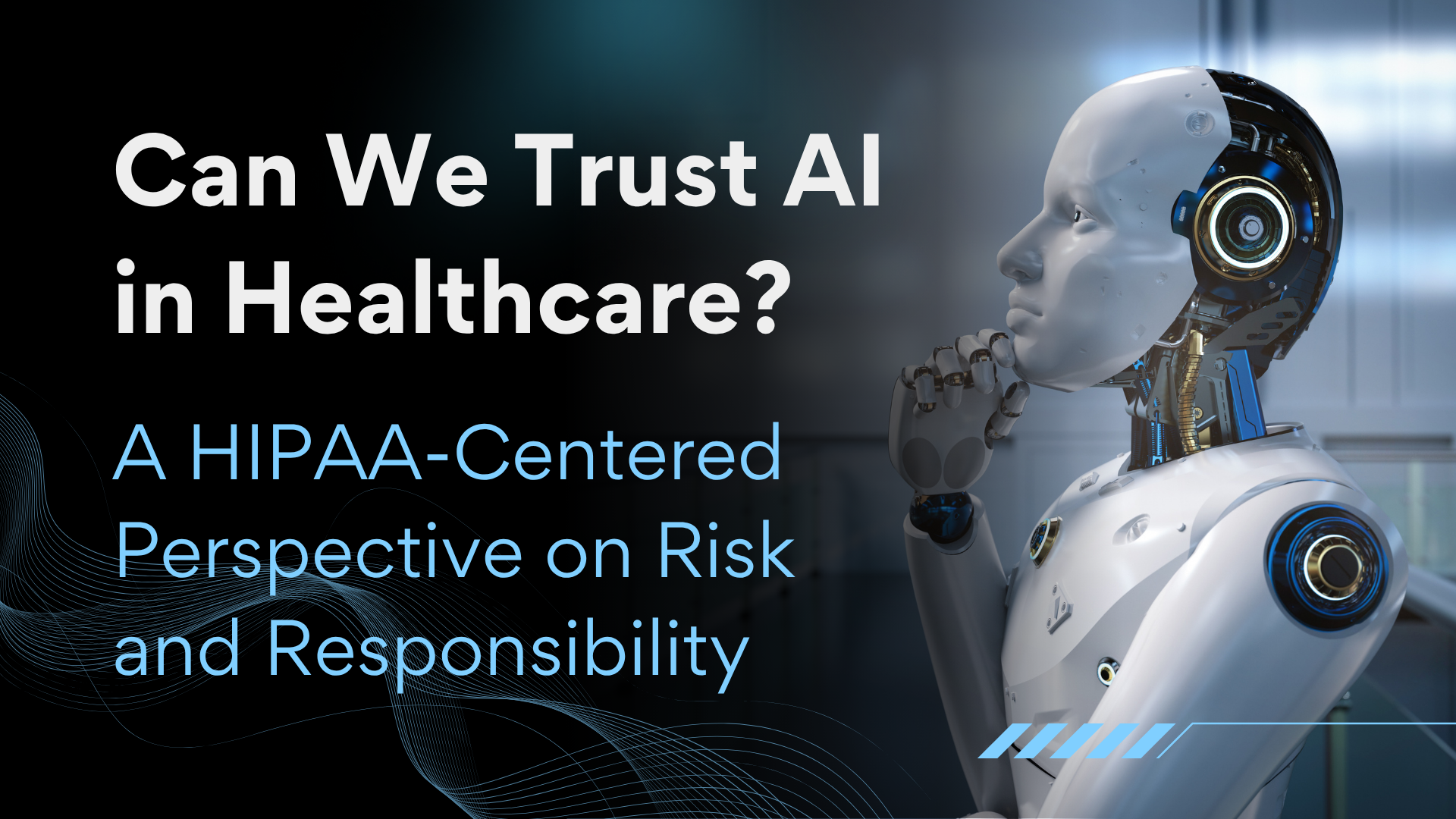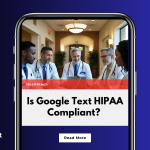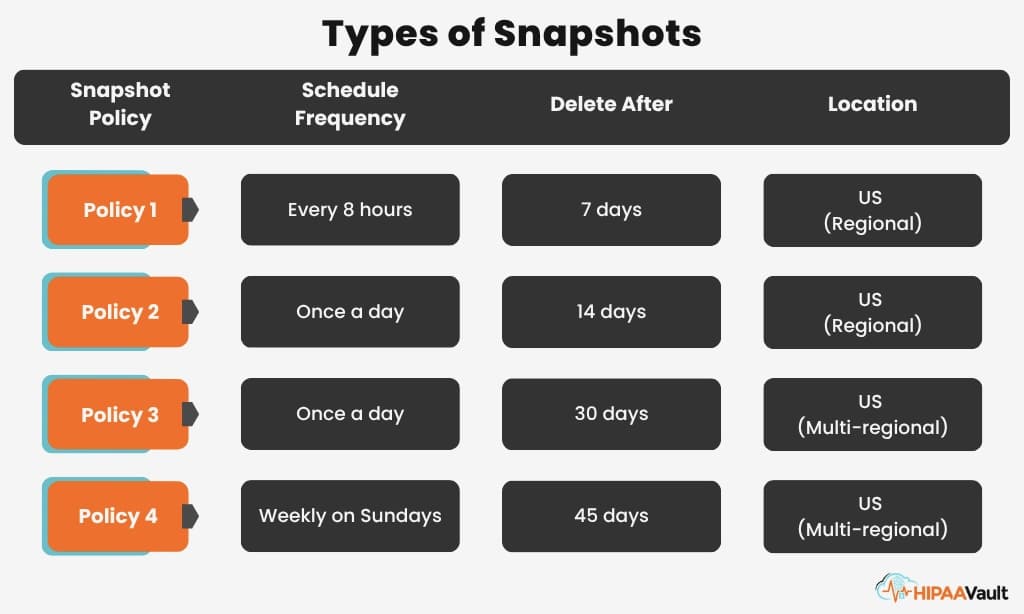Artificial intelligence is rapidly reshaping healthcare. From clinical decision support to real-time patient engagement, AI promises speed, scale, and unprecedented precision. But as AI systems grow more autonomous, so do the stakes, especially when protected health information (PHI) is involved.
At HIPAA Vault, we understand both the potential and the peril of AI in medicine. Our mission is to ensure that healthcare organizations can adopt AI securely, without compromising compliance or patient trust.
Can We Trust AI in Healthcare?
It depends on the data, the design, and the infrastructure.
AI has already proven its value in medical imaging, diagnostics, and automating routine tasks. Algorithms can detect diabetic retinopathy, flag abnormal chest X-rays, and even transcribe clinical notes more efficiently than human scribes.
Used responsibly, these tools save time and improve outcomes. According to study published in Nature Medicine, AI-assisted radiology improved diagnostic accuracy by up to 20% in early cancer detection trials.
But trust is earned, not assumed.
AI’s risks are real: biased training data, opaque decision-making, and security vulnerabilities that can lead to PHI exposure. One major concern is explainability. Many high-performing AI models are “black boxes,” making decisions that even developers struggle to interpret.
And when the AI is wrong? The consequences can be fatal.
Stat News reported that a widely used AI system for predicting hospital readmissions misjudged risk for Black patients due to historical bias in its training data. Cases like this raise serious questions about equity and oversight.
This is where HIPAA steps in—not as a roadblock to innovation, but as a framework for accountability.
HIPAA doesn’t yet name “artificial intelligence” directly. But its core principles—PHI protection, auditability, access controls, and breach notification—still apply to any system handling identifiable patient data. That includes AI.
Without HIPAA alignment, AI is a liability.
With it, AI becomes a powerful ally.
Accelerate Innovation with Managed Google Cloud AI
Build custom models using TensorFlow and Document AI. We handle the security and BAA, giving you total control over your results.
Learn MoreHIPAA Compliance and AI: What the Law Requires
HIPAA was signed into law in 1996, long before AI entered clinical workflows. Still, its safeguards remain highly relevant to modern machine learning systems.
Any AI model trained or deployed on PHI must operate under the HIPAA Security Rule. That means:
- Access controls must ensure only authorized users interact with the system.
- Audit logs must track how PHI is processed, stored, or modified.
- Encryption must be applied in transit and at rest.
- Data provenance must be preserved, ensuring the source of PHI used in training is traceable.
A common blind spot? Model drift.
Over time, AI models can evolve—or degrade—based on new data inputs. If ongoing training uses unsecured or unvetted PHI, this may violate HIPAA without a single breach event.
Another risk involves de-identified data. While HIPAA allows for the use of anonymized datasets, re-identification is still possible if proper safeguards aren’t applied. According to The HIPAA Journal, AI systems trained on weakly anonymized data sets have, in some cases, “reverse engineered” patient identities through correlation techniques.
Healthcare developers must consider these risks before launching AI products.
HIPAA Vault offers compliance consultation and infrastructure hardening for just this reason—ensuring your AI won’t undermine your obligations.
Real-World Applications and HIPAA Risks
The use cases for AI in healthcare are multiplying fast.
EHR automation tools can summarize patient histories. Chatbots can triage symptoms or answer coverage questions. Predictive models help identify high-risk patients for early intervention.
But even helpful tools come with hazards.
In 2023, an AI-driven chatbot launched by a mental health startup gave misleading clinical advice, prompting public backlash and a HIPAA compliance investigation. Despite being designed for informational use only, it was misperceived as diagnostic and wasn’t adequately sandboxed from real PHI.
Another example: in a large U.S. hospital system, an AI-enabled transcription tool accidentally stored voice recordings with sensitive data in unsecured cloud storage. The breach affected over 1 million records and resulted in a major OCR audit.
These are not just technical failures—they’re trust failures.
When PHI is involved, every system must be secured from the ground up. This includes:
- Containerized deployment environments
- Role-based access
- Penetration testing
- Encrypted backup and disaster recovery
That’s where HIPAA Vault steps in.
HIPAA Vault’s Role in Supporting Trustworthy AI
Trust starts with infrastructure.
HIPAA Vault provides a hardened cloud environment built specifically for healthcare AI workloads. We offer:
- Fully encrypted storage for training and inference data
- Access-controlled, audit-ready compute environments
- Multi-factor authentication and 24/7 monitoring
- Full compliance with HIPAA and HITRUST CSF standards
Our clients include healthtech startups, research hospitals, and SaaS vendors integrating AI into clinical and administrative solutions. Whether you’re fine-tuning a diagnostic model or deploying a chatbot for patient intake, we provide the backbone that keeps you compliant and secure.
Want to avoid the hidden risks of AI deployment?
Secure your healthcare AI environment today with HIPAA Vault:
👉 Explore Our HIPAA-Compliant Cloud Hosting
Need guidance from the ground up? Our experts will help configure compliant workflows for training, inference, and model monitoring—so you can innovate without compromise.
Conclusion
So, can we trust AI in healthcare?
Yes. But only when it’s built and deployed responsibly.
Trust means transparency. It means testing, oversight, and compliance. It means aligning AI with HIPAA’s mandates for security, integrity, and patient privacy.
As the AI revolution accelerates, the healthcare sector must lead with caution, not just code.
HIPAA Vault is your partner in that mission.
From secure hosting to hands-on compliance consulting, we empower healthcare innovators to deploy AI with confidence.
Let’s build the future of healthcare—responsibly.
🔐 Get HIPAA-Compliant AI Infrastructure with HIPAA Vault








